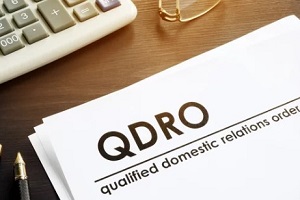 Divorce presents challenges for any partnership, but it can be even more complex and stressful for those who are nearing or already in retirement. Because financial plans were likely established with two people in mind, switching to an individual approach—and facing the potential loss of some retirement account value after divorce—can dramatically change how one’s retirement can proceed.
Divorce presents challenges for any partnership, but it can be even more complex and stressful for those who are nearing or already in retirement. Because financial plans were likely established with two people in mind, switching to an individual approach—and facing the potential loss of some retirement account value after divorce—can dramatically change how one’s retirement can proceed.
However, by carefully approaching the issue of divorce within the context of retirement, both spouses can preserve their assets and establish a secure financial future in the midst of separation. Here are the key points to keep in mind when planning for divorce in retirement to ensure financial wellness going forward.
What Happens to Retirement Accounts During Divorce?
Divorce typically results in one or both partners relinquishing some of their assets to the other party. In Maryland, the court will divide the resources of each partner according to what is equitable. This is not necessarily the same thing as what is “equal”—instead, equity involves a sense of fairness.
If one partner earns significantly more than the other, such as in cases in which one parent stays at home and the other works, splitting assets equitably requires the individual with the higher income to provide support to the one with less or no cash flow.
The same is true of retirement accounts during divorce. Retirement accounts are not immune from being cashed out or reallocated according to what is most equitable.
It is entirely possible that one party’s balance could be severely undercut by a divorce, leaving them with less than they planned for in their later years. In order to ensure a secure financial future, affected individuals should implement a few important preparations.
Establish Independent Plans
Begin making individual plans as soon as possible. This includes making decisions regarding obligations or benefits that were once shared, such as health insurance, other types of insurance (e.g., auto) and wills or powers of attorney.
If these important policies are not amended, assets could be transferred in ways that the parties do not intend. For instance, a power of attorney granted to the other spouse could put them in control of an unwilling party’s assets if not amended.
Determine how much income is necessary to survive within the area in which the affected parties live. Proving that divesting assets to the other partner would cause financial insolvency or hardship can be an effective means to support that a proposed division is not equitable, thus reducing the value of the assets lost.
Safeguarding Retirement Accounts in Divorce Proceedings
Next, take steps to safeguard the retirement assets that belong to you. In Maryland, it is the responsibility of each party to prove that they own their share of the assets, rather than the opposing party’s duty to prove that they do not.
This means that each partner will need to locate bank statements and histories tracking investments into retirement accounts as occurring either before or after they were legally married.
Contributions made prior to marriage are considered non-marital and are the sole property of the individual whose money was contributed. In Maryland, this value cannot be recovered during a divorce.
However, contributions made after the marriage was legally finalized are considered marital property, and it is from this value that distributions can occur. While completely safeguarding the entire balance of a retirement account during divorce is unlikely, proving non-marital property is the best first step toward preserving as much of it as possible.
 A QDRO, or qualified domestic relations order, is an official judgment that dictates the rules for cashing out assets from retirement accounts during a divorce. Securing a QDRO is a vital element in protecting the value of retirement assets.
A QDRO, or qualified domestic relations order, is an official judgment that dictates the rules for cashing out assets from retirement accounts during a divorce. Securing a QDRO is a vital element in protecting the value of retirement assets.
This documentation allows for the assets to be transferred between parties without paying the associated fees. Obtaining a QDRO is important when drawing from accounts such as a 401(k) prior to the age of 59 ½, which will result in premature withdrawal penalties of 10%. The QDRO voids this penalty for divorce asset reallocation.
Get Help Protecting Your Retirement Accounts During Divorce With Counsel From Milstein Siegel
Retirement is a difficult time to undergo a divorce for many reasons. In particular, this can be due to the nature of finances after one has left the workforce. However, with a strategic approach and the support of an experienced legal team, many of a person’s retirement assets can be preserved in divorce.
The team at Milstein Siegel works to achieve what is equitable during proceedings. Contact us to discuss your situation and set up a consultation.
